Born less than five years apart in Georgia, the late President Jimmy Carter and Martin Luther King Jr. both came up during the civil rights movement, rising to the top of American politics to be remembered as statesmen of their time. And despite having never met, Carter and King would spend more than half a century tangled in a dance that would forever shape the legacy of the other.
"When I look at his life and I look at my father's life, they both started from different place," Bernice King, the youngest daughter of the civil rights icon, told Newsweek in an interview following Carter's death at 100 last month "But in an interesting way, they both operated from a similar frame of reference, which was the belief that we can create a just, humane, peaceful and equitable world."
For all the parallels between them, Carter and King took starkly different paths.
King's father was an influential pastor at the Ebenezer Baptist Church in Atlanta and an early figure of the burgeoning civil rights movement. The younger King devoted his entire life to advancing civil rights for people of color. His protest actions, including marches for desegregation, the right to vote and labor rights, led to landmark legislative gains like the Civil Rights Act and the Voting Rights Act.
Carter, meanwhile, would not be seen as a civil rights advocate until after he was inaugurated as governor of the Peach State in 1971.
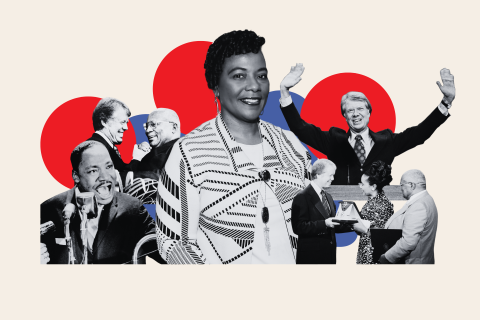
The son of a white supremacist, Carter avoided taking controversial stances on race in the early years of his career. Although he was never known to say anything explicitly racist or aligned with his segregationist colleagues in the Georgia legislature, as a state senator, Carter also didn't speak out in favor of the pivotal laws King helped pass, nor did he visit Ebenezer, not even when the church held King's funeral in 1968. It wasn't until almost three years later, at his gubernatorial inauguration, that Carter announced, "The time for racial discrimination is over," shocking many of his white supporters in the South.
Bernice King, who was barely 5 years old when her father was assassinated in Memphis, said, Carter "lived out the thrust of what my father was trying to do, which was to eradicate the triple evils of poverty, racism and militarism around the world."
From the moment he became governor of Georgia, Carter would spend the rest of his life advocating for the civil rights he had largely avoided when he set his eyes on public office. During his first term as governor, Carter made the historic decision to hang King's portrait alongside those of Civil War heroes and segregationists on the walls of the state Capitol in Atlanta. At the time, no portrait of a Black person had been displayed in the building.
The Kings had paid close attention to Carter's record as he rose in politics. In the beginning, they were skeptical about the conservative Democrat. But as time went on, and they saw the governor's efforts to integrate the state, the family's bond and relationship with him developed., "My mother and my grandfather eventually became supporters of his presidential campaign nomination," Bernice King said.
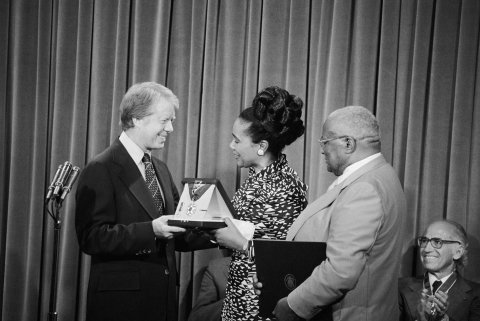
King's father, Martin Luther King Sr., and his widow, Coretta Scott King, would close the 1976 Democratic National Convention, delivering a resounding benediction to Carter, who the elder King said was "surely" sent by "the Lord" to "bring America back to where She belongs."
"It played a tremendous role in getting President Carter elected," Bernice King said. "At that time, we were coming out of the movement, still in the early days of desegregation, and things of that nature. It was a slippery slope, even for Carter, in terms of getting the support of [Black America]."
Carter, a dark-horse candidate for president who was not well-known outside of Georgia, narrowly defeated incumbent Gerald Ford thanks to overwhelming support among Black voters in states like Louisiana, Texas, Ohio, Wisconsin, Mississippi, Missouri and Pennsylvania. He served one term as the 39th president, going on to lose reelection in a landslide to Ronald Reagan. The loss after a single term would brand Carter a political failure, but his legacy remains characterized to many by what he did for the civil rights movement.
As president, Carter opened government contracts to Black-owned businesses, steered more money to historically Black colleges and universities and appointed a record number of Black Americans to executive and judicial posts. Those appointees also served as a springboard for Black women in politics. Patricia Roberts Harris became the first Black woman to serve in the U.S. Cabinet, as secretary of housing and urban development, under Carter, while Eleanor Holmes Norton became the first woman to head the Equal Employment Opportunity Commission in his administration.
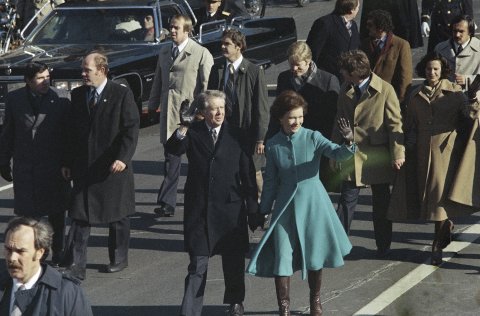
And the Carters did not forget the Kings. Carter and his wife, Rosalynn, welcomed the family to the White House in 1977 to present Coretta Scott King with a posthumous Medal of Freedom for her husband—the first federal recognition of King and his leadership. Carter helped her raise about $3.5 million toward building of the King Center, Coretta Scott King's tribute to her slain husband. The president also signed legislation establishing the Martin Luther King Jr. National Historical Park, and he named Coretta Scott King to the U.S. delegation of the United Nations during the time that Andrew Young, a confidant of King, was Carter's ambassador to the U.N. and the first Black American to hold the position.
"A lot of these different things he did were considered very courageous at that time because there were still some of those southern Dixie-crats that eventually became more conservative and [aligned with] the Republican Party," Bernice King said. "There was a very strong bond and relationship between him and my father."
King's daughter said that ultimately, Carter's leadership as both governor and president, plus his post-political career, "transcends all of the negative aspects of his legacy."
"People evolve, people develop, times are different," she said.
Bernice King said Carter's decision to leave his family roots behind and use his experiences with the Black community to understand the plight of the movement showcased his ability to lead.
"He's a very reflective person, and his faith played a very essential role in his life," she said. "I'm sure that he wanted to ensure that who he was as a person aligned with his faith, regardless of what his family background may have been. That says a lot, and it says that we have the ability to do it as individuals."
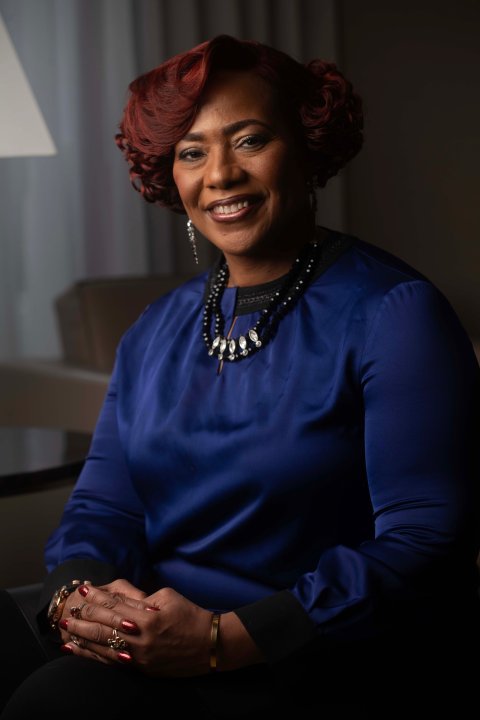
"These were courageous leaders," she said of the late president and her father. "They did things that people didn't agree with, [even] people that they worked with. Sometimes, we get a little afraid and become a little bit of a coward because we don't want to lose those precious relationships. My father, as well as Jimmy Carter, were loyal to their conscience."
King, who was assassinated at 39, would have been 96 on January 15. This year, the federal holiday commemorating his birthday will also fall on the inauguration of the second Trump administration—a coincidence that Bernice King sees as a message from her father: the work of the civil rights movement must continue in his spirit of nonviolence to address inequality and injustice.
"Ironically, things keep coming back around to my father over and over again," she said, explaining that even though the two events were not scheduled for the same day on purpose, "Sometimes, it just happens that way because there's a strong message continually being sent to us."
She has a similar view on Carter's passing. The former president died in the waning days of 2024, a year that saw a presidential election with a Black woman at the top of a major party ticket for the first time. Carter, who had been in hospice care since February 2023, was able to gather the strength to vote for Kamala Harris, fulfilling a wish his family said was among his last.
For Bernice King, Carter's death emphasizes the nation's need to "reflect on the values and that he practiced."
"And we'll be revisiting those same things on the King holiday, which happens to be the beginning of a new administration," Bernice King said. "Regardless of the administration, we all have a personal responsibility in moving our nation forward toward a just and humane society. No one is really exempt."
To read how Newsweek uses AI as a newsroom tool, Click here.









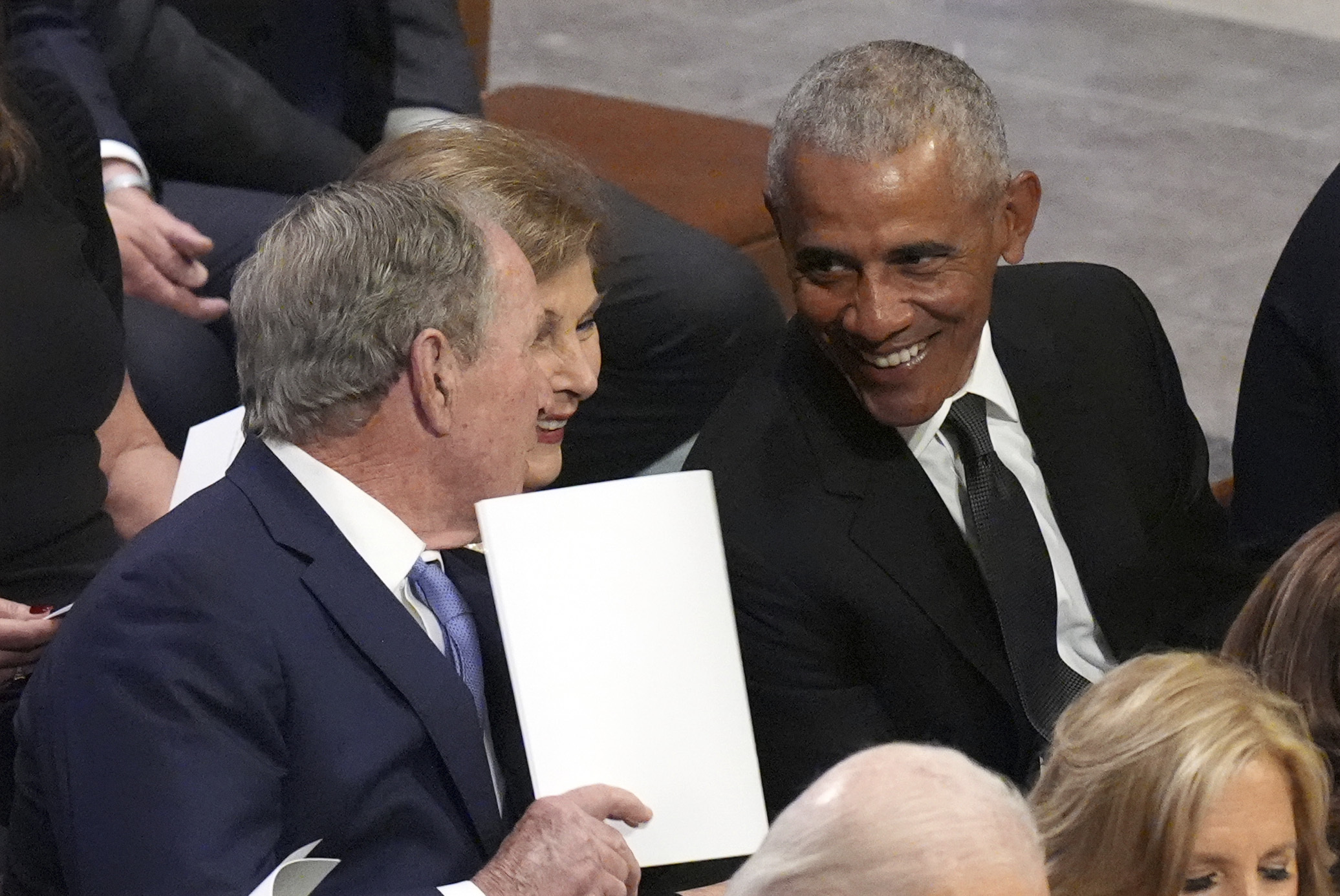
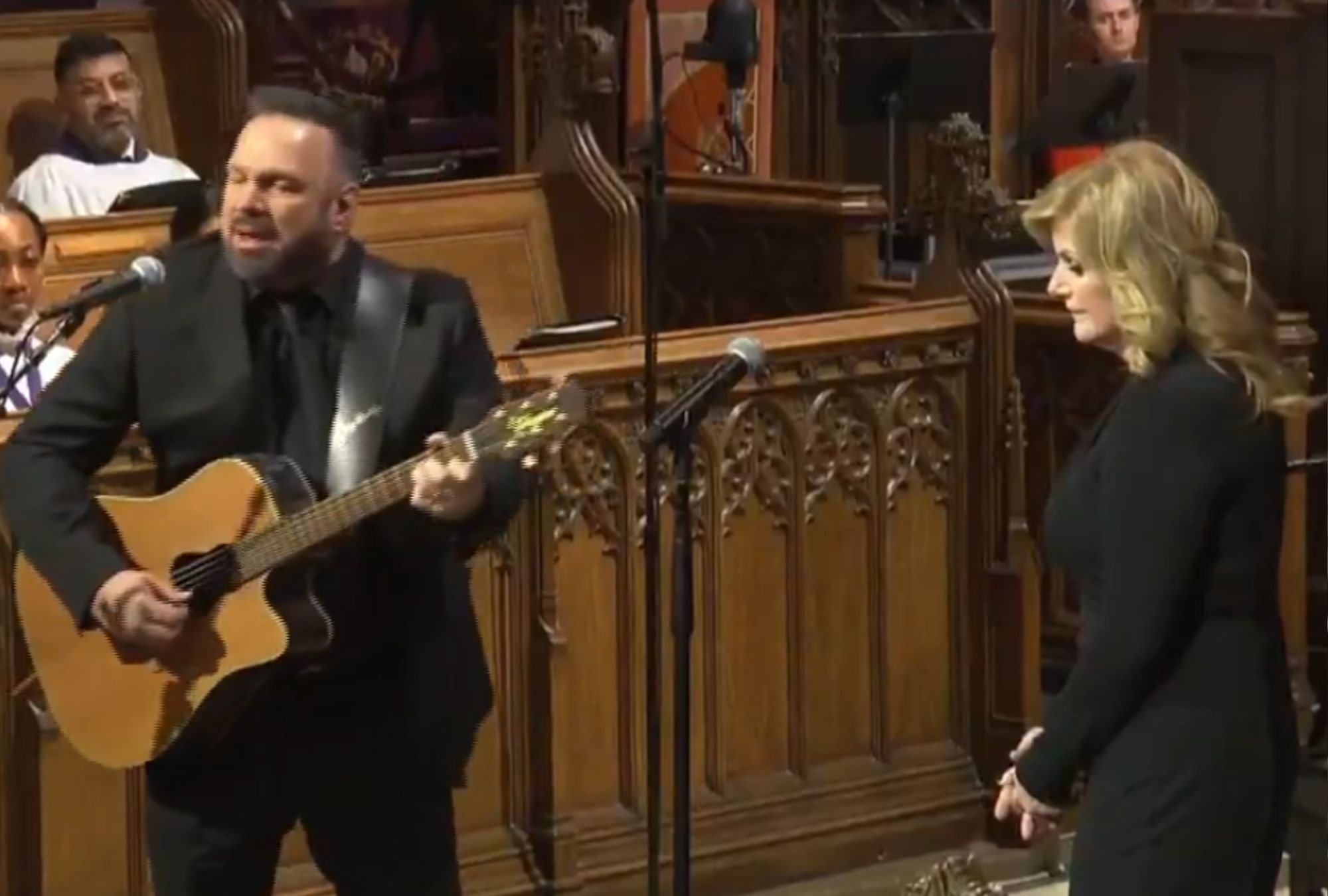









 English (US) ·
English (US) ·